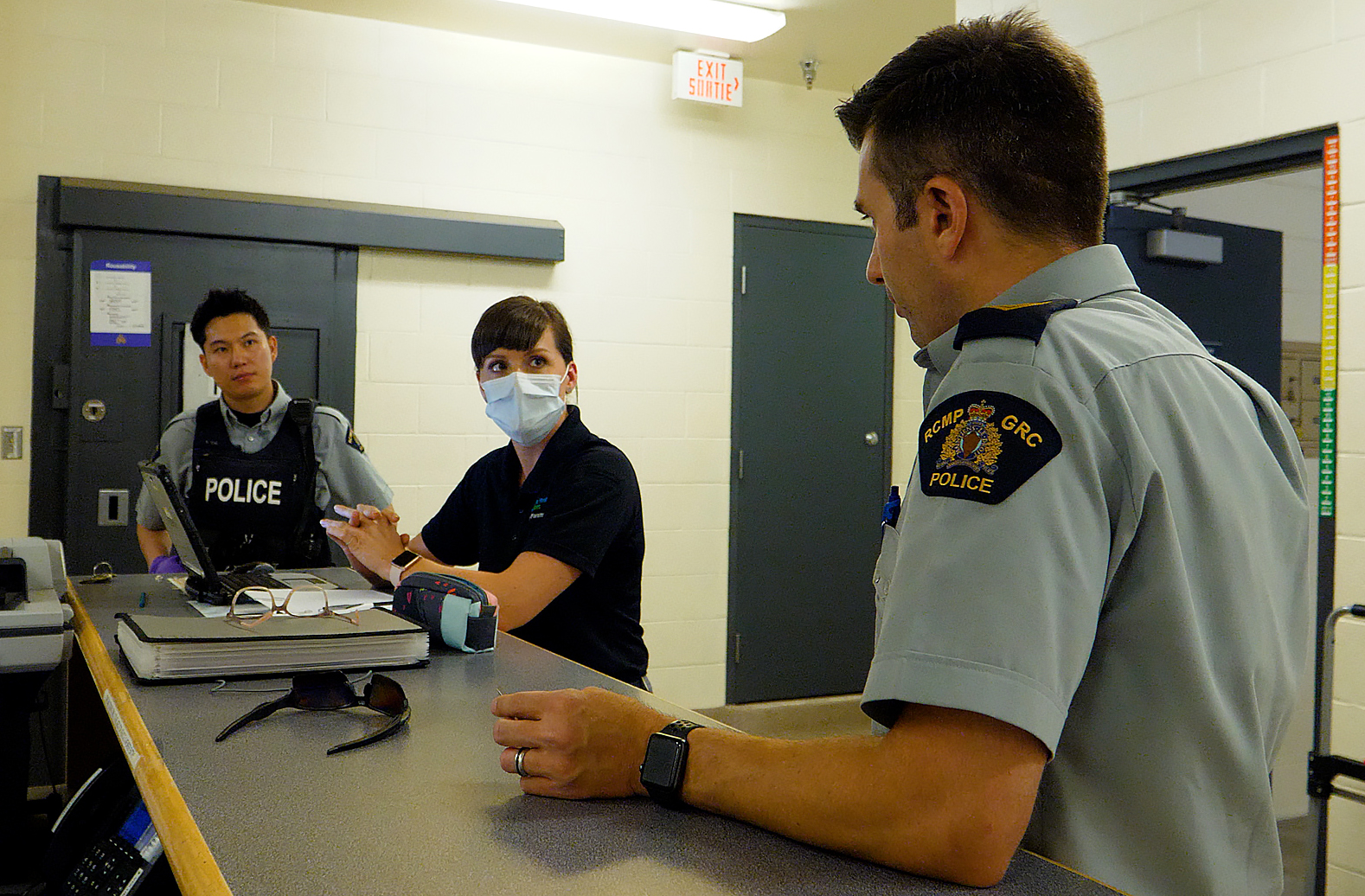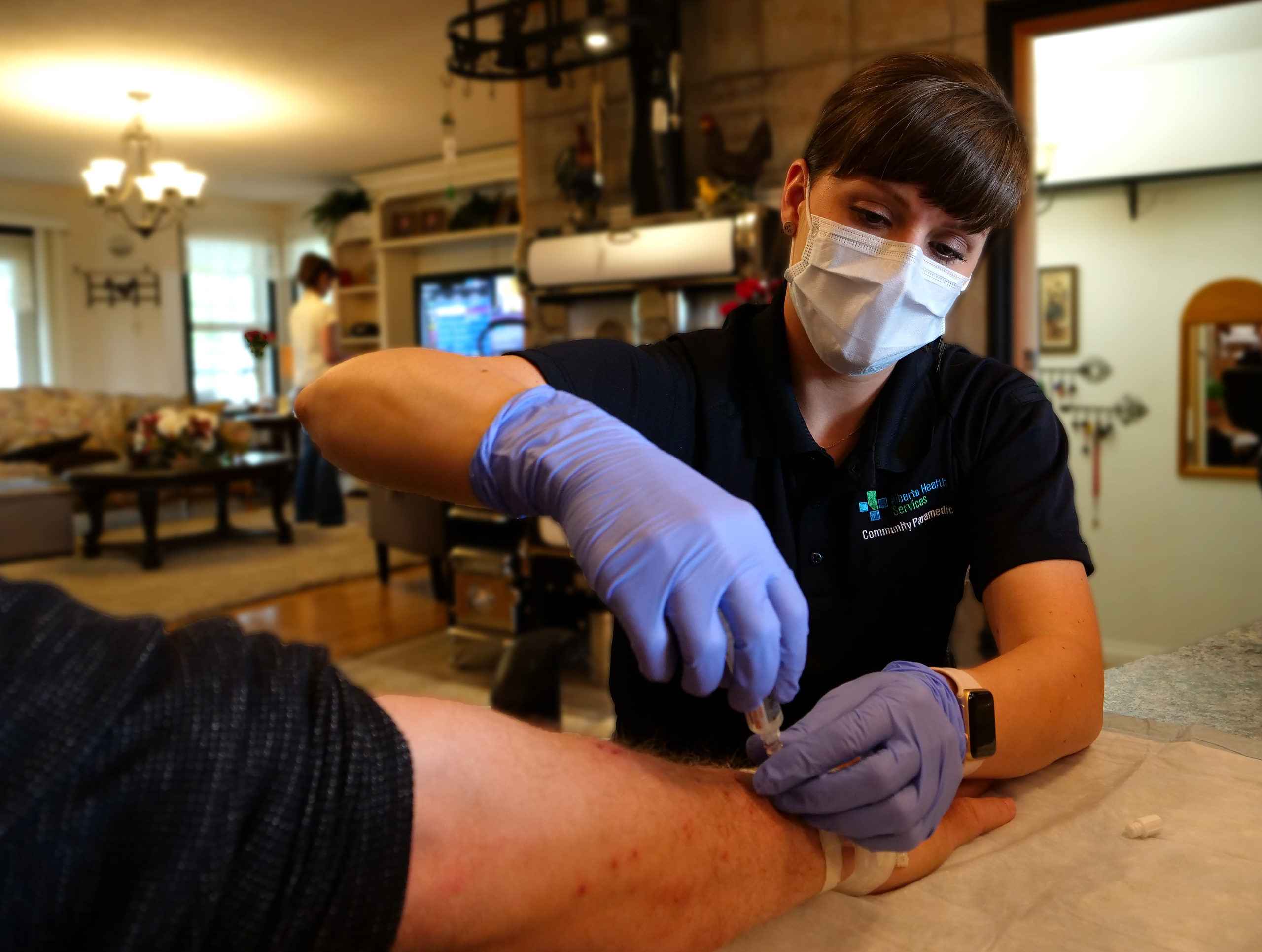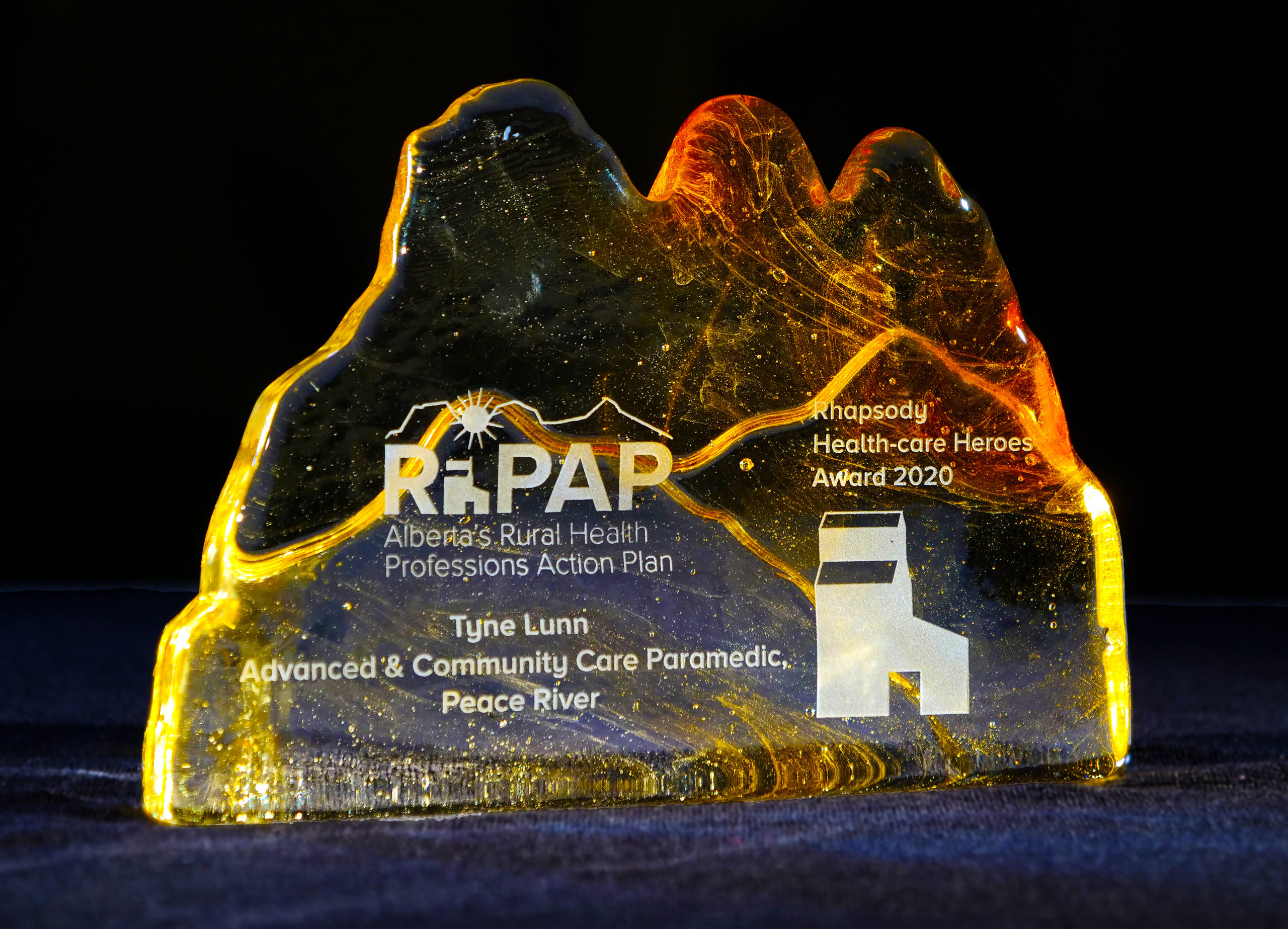The exciting thing about being a rural community paramedic is that you never know what the day may bring.
One thing is certain for community paramedic, Tyne Lunn: each day starts at 7 a.m. at the Emergency Medical Services headquarters in Peace River, Alberta.
On this day, her first day back after some time off, Lunn began by checking to see if her vehicle contained all the supplies and equipment she needed for her day on the road. Those supplies include medications.
For most paramedics, administering medications to patients is out of the scope of their role, but, for Lunn, it’s a big part of her day.
At 7:30, she checked in with her dispatcher to see what clients were already booked for the day.
Lunn’s first stop was to provide care for an elderly client who lives in Peace River. It was a quick stop, but visits like this prevent patients with mobility issues from having to go to the hospital for care.
Lunn has developed close connections with local health-care professionals, including physicians such as Dr. Karen Lundgard, Peace River community medical director and family physician.
“I had a lady with a big red spot on her leg,” recounted Dr. Lundgard. “She was wheelchair bound. It was very difficult for her to get in [to the hospital]. All I needed to do is have a look at [her leg]. I was able to get the community paramedic to go to the home, take a picture of it, send me the picture, and I could tell it wasn’t infected. It didn’t need antibiotics.
Dr. Lundgard never hesitates to use Lunn’s services.
“She is personable. The patients love her. She’s very professional.”
The affection is mutual.
“The accessibility that our local physicians provide to us is immeasurable in terms of my clinical practice and having them as a resource for learning and for mentorship,” said Lunn.
Police can do better work when they have our support, and we can do better work with our clients when we have police support – Tyne Lunn, community paramedic
Initially, Lunn started her career working with air ambulance. She switched to ground ambulance after her daughter was born because the hours were more mom-friendly.
Then, when the Province of Alberta expanded the community paramedic program to include Peace River in 2018, she jumped at the opportunity.
“When you’re working on an operational 9-1-1 ambulance and you are getting called to go help somebody in crisis or in an emergency, you’re going to render immediate care and then take them to a hospital or health facility,” said Lunn.
“Whereas, now, my job as a community paramedic is the exact opposite: it’s a successful workday for me when there is no need to transport my clients.”
Her next stop is at the Peace River RCMP Detachment.
Earlier in the morning, a man had been acting irrational and aggressive at the local Walmart. The RCMP suspected he was suffering a mental health emergency. He was taken into custody and they contacted Emergency Medical Services.

“Sometimes when people are struggling with mental health crises, their behaviour can be dangerous to themselves or others,” explained Lunn. “So, the police, first and foremost, did their work of making sure public safety was upheld and maintained, and then once they had the public member safely away from the public, they called in for our services to take care of this person.”
Undaunted by her client’s erratic behaviour, Lunn entered his jail cell with the safety of two police officers at her side. She remained calm as she asked the patient questions and did her assessment.
“Police can do better work when they have our support, and we can do better work with our clients when we have police support,” added Lunn.
After a discussion with the RCMP about next steps for this client, Lunn headed back to her vehicle for a 50-km drive west of Peace River.
Tyne’s been instrumental in building the partnerships in that local area, advocating for the type of services that we provide – Ryan Kozicky, director, EMS Mobile Integrated Healthcare, AHS
This wasn’t her first visit.
In fact, she has become so familiar that the dog didn’t even bark when she got out of her van outside the home of a client suffering from a serious blood infection.
“It’s a very stubborn infection to treat,” explained Lunn. “Instead of him being able to take some antibiotics by mouth and carry on with his day, it physically debilitated him to the point that he was no longer able to drive [and] had a very hard time walking.”
“I just think it’s awesome,” says Doyle Kaminicki, Tyne’s client. “It’s great for me [and] other people too, if they can’t get around, either that or being stuck in a hospital. Right now, I can be at home and actually live more of a normal life.”
Out-of-town trips like this are typical for a rural community paramedic.

“When we moved into the Peace River area to start up our community paramedic program, that was truly one of our first unique rural sites,” said Ryan Kozicky, director, EMS Mobile Integrated Healthcare, Alberta Health Services.
“Tyne’s been instrumental in building the partnerships in that local area, advocating for the type of services that we provide, and really going beyond just that clinical practitioner to that real program advocate.”
“The challenges that I have faced in a rural setting have actually been the greatest assets to the growth of my career,” added Lunn.
Tyne’s shift wrapped up at 7 p.m. She headed home for supper and then a bike ride with her daughter along the beautiful pathways next to the mighty Peace River.
Congratulations to Tyne Lunn, a recipient of the 2020 RhPAP Rhapsody Health-care Heroes Award.

